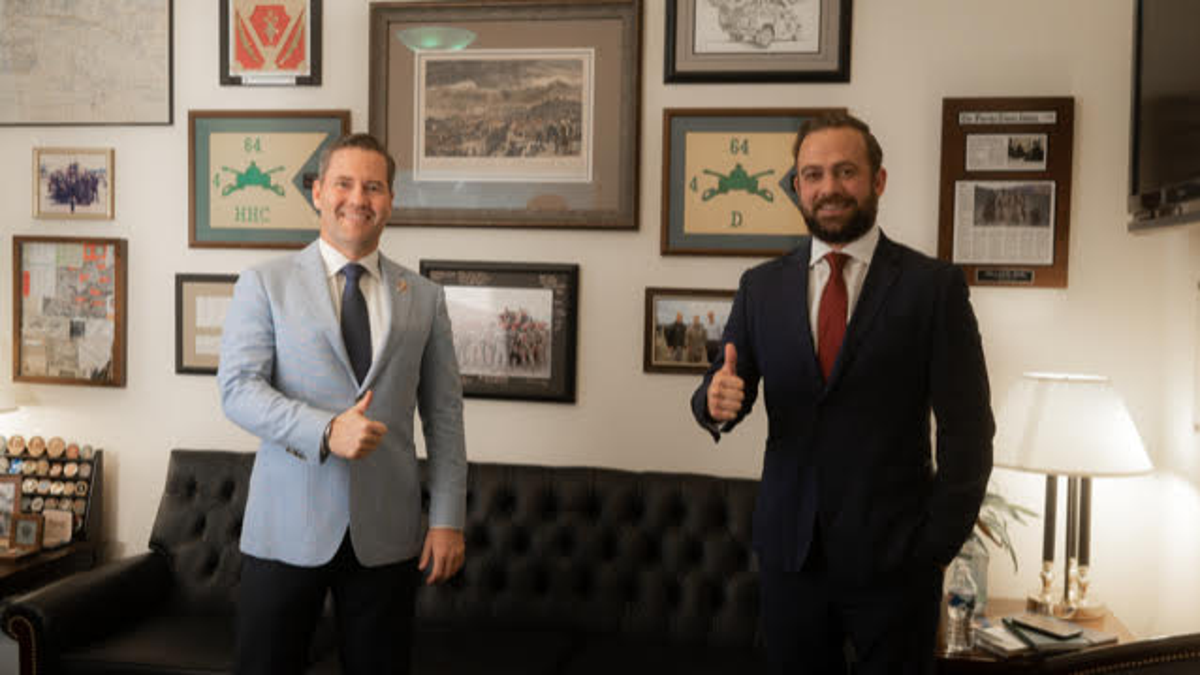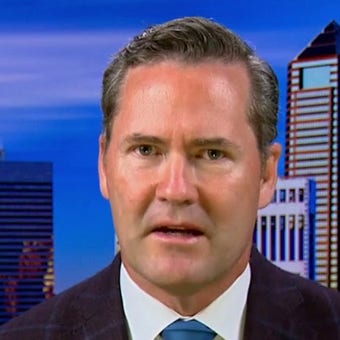As proud U.S. war veterans, we are always looking for new ways to serve our country, and the COVID-19 pandemic has created an amazing opportunity for us to share what we have lived and learned about mental health and suicide prevention with the nation as we all join forces to battle this disease.
In the Army, we are trained to respond under the trauma and stress of battle. During the COVID-19 pandemic, the battlefield looks different. Our health care workers are on the frontline of the war against the invisible enemy of this virus.
But, even those behind the hospital frontlines have caught shrapnel from the disease. They have lost a friend or family member. They have lost their job or their business. Others sit alone in nursing homes, unable to have even the simplest human comfort of a hand to hold.
ROBIN WILLIAMS’ WIDOW SAYS HE HAD AN ‘INVISIBLE MONSTER’ CHASING HIM FOR MONTHS BEFORE DEATH
While at war, we had to not only pick up the pieces on the battlefield and bury those souls that were lost, but we had to pick up the pieces internally as well.
Our minds struggled to digest the suddenness and severeness of those we lost.
The process of working through trauma is instrumental to healing the internal injuries of war. As veterans, we know that process is so vital to the healing process that we now have a name for it: Post Traumatic Growth. This is also the BIG, NEON sign we want to put up for everyone hit by the COVID-19 pandemic: Learn more about Post Traumatic Growth.

September is National Suicide Prevention Month and our organization, Mission Roll Call, is partnering with national veterans’ health leader, Rep. Michael Waltz, R-Fla., to shine a spotlight on the mental health effects of the COVID-19 pandemic.
Our caution during this pandemic is simple: It’s dangerous to ignore the mental health effects of a trauma, so please check on family, friends and anyone who has suffered a loss related to COVID-19.
This virus continues to affect our veterans, many of whom have not been able to access the addiction services or therapies they need because of underlying conditions, as well as our healthcare workers who have experienced increases inpatient fatalities, and every American who has suffered a sudden loss due to the pandemic.
More from Opinion
All of us at Mission Roll Call, along with Waltz’s team, want to share experiences from our frontline to yours. Throughout the month of September, we are pushing the "From Our Frontline to Yours" campaign to bring attention to mental health needs and suicide prevention.
CLICK HERE TO SIGN UP FOR OUR OPINION NEWSLETTER
Understanding the concepts of post-traumatic growth is a cornerstone of this campaign because it stresses that productive lives – and even stronger mental capacities – are possible as people pick up the pieces after a tragedy.
Our caution during this pandemic is simple: It’s dangerous to ignore the mental health effects of a trauma, so please check on family, friends and anyone who has suffered a loss related to COVID-19. Additionally, it’s dangerous to assume that a loss means irreparable damage.
Pain is just as real as healing. Post-traumatic stress disorder, anxiety, depression, addiction or other mental health challenge is not a "new normal" to simply be accepted.
CLICK HERE TO GET THE FOX NEWS APP
Every American, as well as every veteran, has the ability to change their mindset and change their lives. The battle scars of war and trauma are a reminder that we have the opportunity to live more meaningful lives because we now value what used to be regarded as common.
Please join us in spreading this message and raising awareness about Post Traumatic Growth during the month of September. Together, we can help everyone affected by COVID-19 pick up the pieces.
CLICK HERE TO READ MORE BY REP. MICHAEL WALTZ
Garrett Cathcart served in both the Iraq and Afghan wars as a Cavalry Scout with the United States Army. During the Surge in 2006, Garrett was a Reconnaissance Scout Platoon Leader in northern Baghdad. He served as an Iraqi Army military advisor team chief in 2008, living, training and operating with an Iraqi Infantry Battalion. Cathcart was also a Cavalry Troop Commander in Afghanistan in 2010 where he was commended for recruiting and operating with tribal militia to fight the Taliban.

